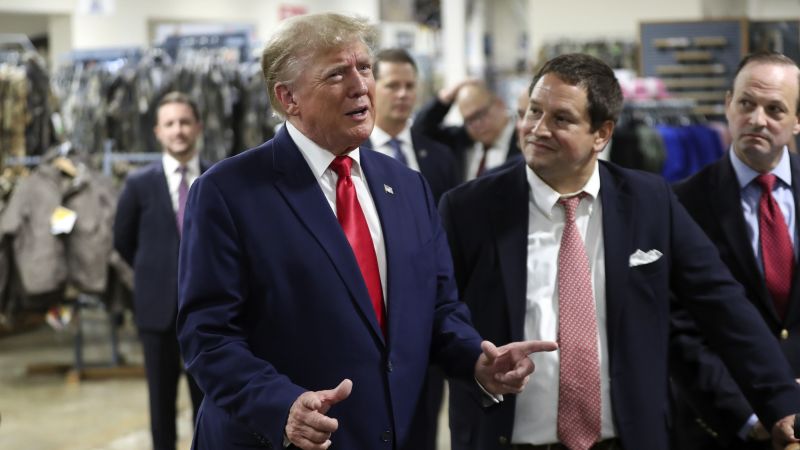Federal prosecutors have told a federal judge that if Donald Trump had bought a gun earlier this week during a campaign stop, he would be violating his release conditions as a criminal defendant and breaking the law, according to a Friday court filing.
A campaign spokesman for Trump had posted on social media that Trump bought a Glock in South Carolina on Monday, then removed the post and clarified to CNN the former president hadn’t purchased the firearm.
Prosecutors pointed to the moment, as well as the former president’s recent attacks on departing Joint Chiefs Chairman Gen. Mark Milley, in asking a federal judge to place more restrictions on Trump, particularly on what he can say, as he awaits trial in Washington, DC, on federal charges of 2020 election interference.



This is the best summary I could come up with:
“The defendant either purchased a gun in violation of the law and his conditions of release, or seeks to benefit from his supporters’ mistaken belief that he did so,” the prosecutors wrote on Friday.
“The defendant should not be permitted to obtain the benefits of his incendiary public statements and then avoid accountability by having others—whose messages he knows will receive markedly less attention than his own—feign retraction,” the prosecutors argue.
“This is an act so egregious that, in times gone by, the punishment would have been DEATH,” the former president had written about Milley speaking with a Chinese general near the end of Trump’s term, the prosecutors noted.
Trump’s team opposes the request, arguing in a court filing earlier this week that the proposed order is unconstitutional, overly broad and an effort to censor the former president during the 2024 presidential race.
They also highlight Trump’s social media posts in early December where he was sarcastic about Chutkan’s fairness, called the special counsel’s office “Really corrupt!” and prosecutors on the team “Lunatics,” and said that his former Vice President Mike Pence, a key witness in the case, went to the “Dark Side.”
“In the defendant’s opposition—premised on inapplicable caselaw and false claims—he demands special treatment, asserting that because he is a political candidate, he should have free rein to publicly intimidate witnesses and malign the Court, citizens of this District, and prosecutors.
The original article contains 761 words, the summary contains 233 words. Saved 69%. I’m a bot and I’m open source!